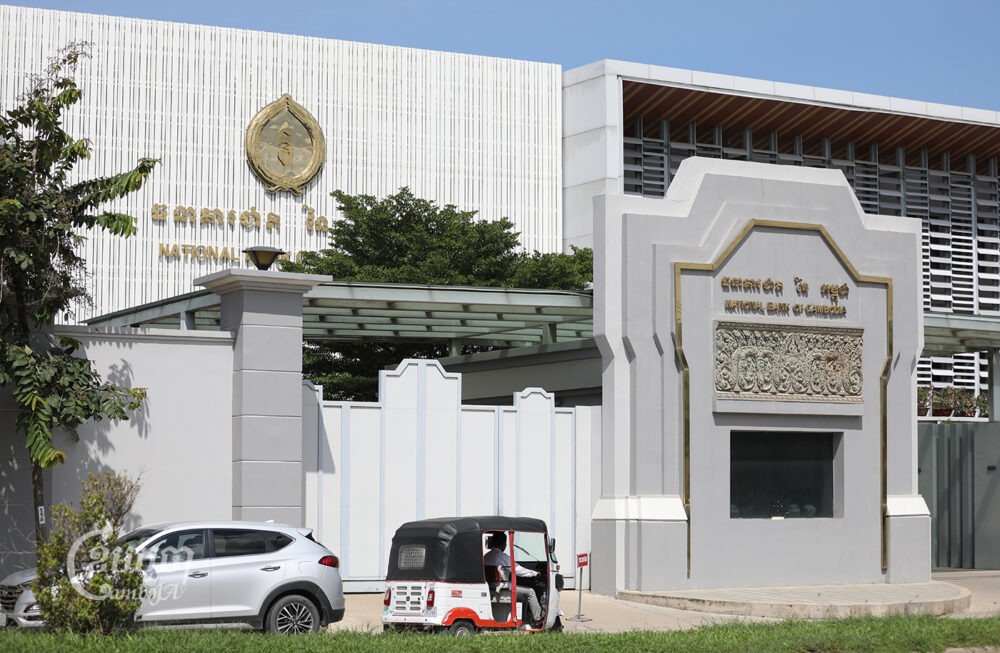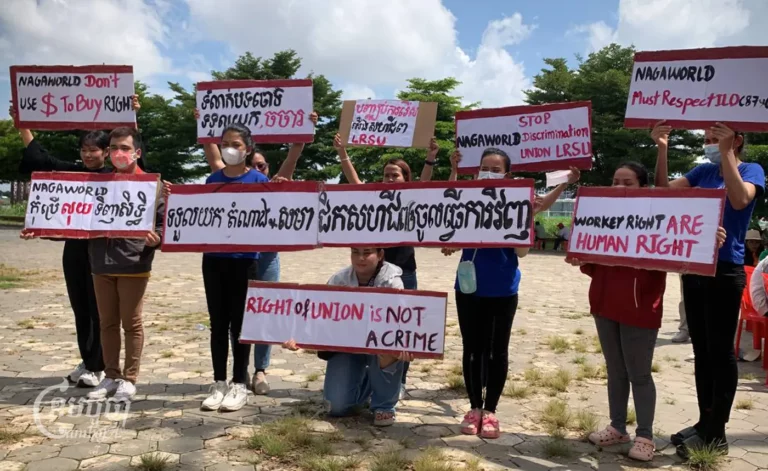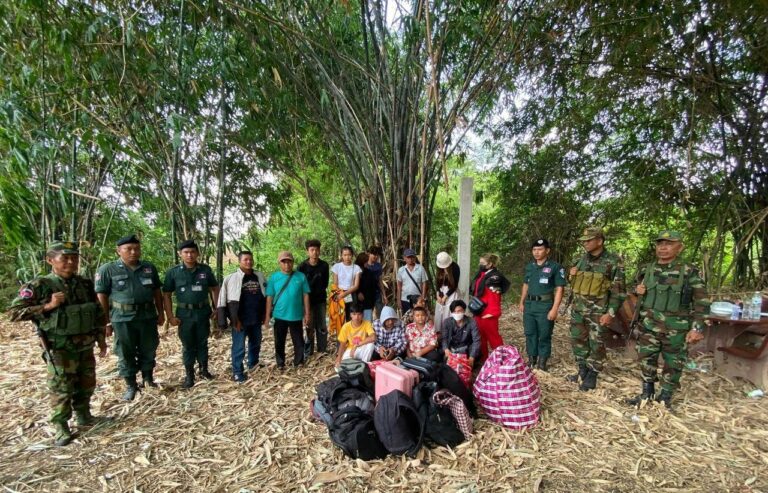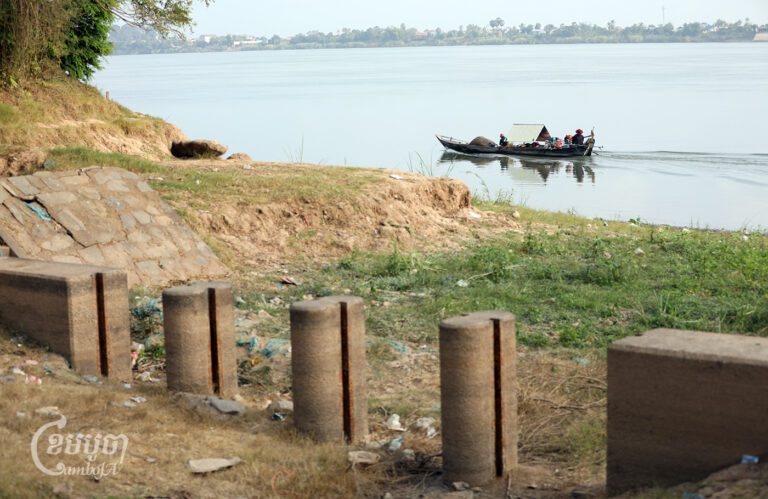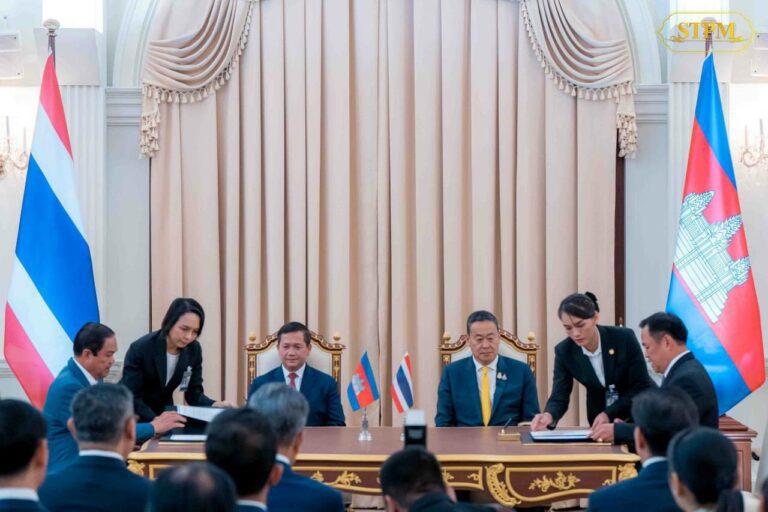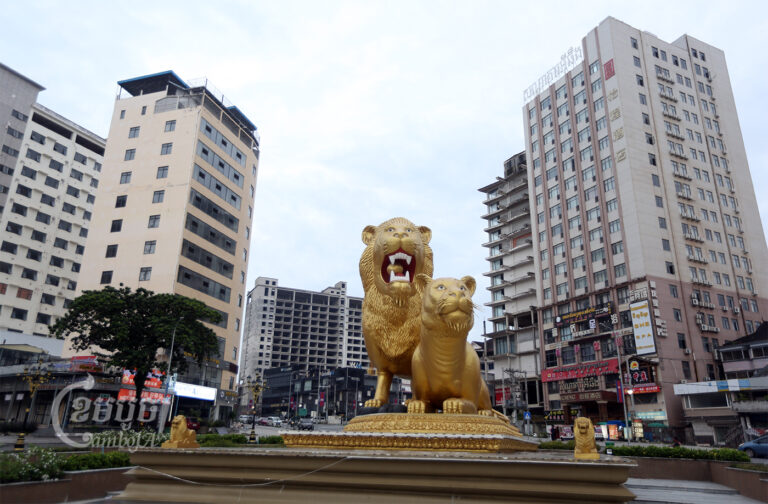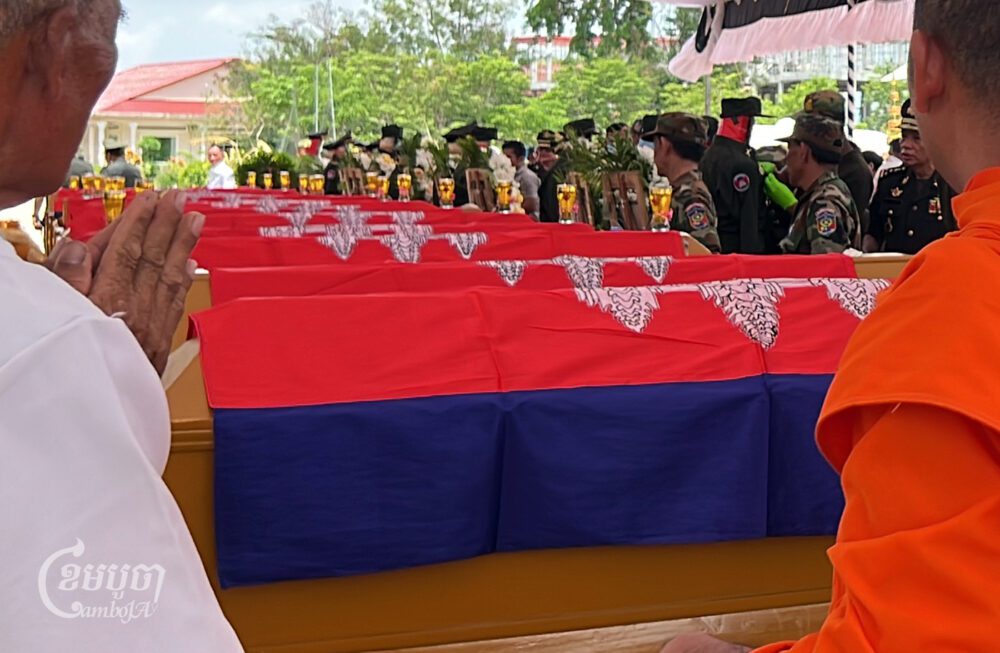The National Bank of Cambodia (NBC) is a monetary authority in Cambodia that seeks to “determine and direct monetary policy aimed to maintain price stability in order to facilitate economic development.” To this end, responding to economic impacts due to the pandemic and to the war in Ukraine has been among its primary objectives over the past several years.
The NBC has also contributed to the government to undertake special support for the economy focused on the financial sector, as outlined in its 2022 Financial Stability Review report released on July 6. The power of the bank to effect change—most notably around the challenge of inflation—however, is limited in a few key ways.
The bank’s response to the pandemic has taken several forms. One of its primary goals has been to keep exchange rates stable by using foreign exchange intervention to control indirect money supply in the market through purchasing their own currency (riel) from the market, specifically from banks, microfinance institutes (MFIs), and from money exchangers.
To achieve stability, over the course of 2021 central bankers injected $600 million in cash into the market to maintain the stability of the riel and to preserve purchasing power of riel users in their economy. Overall, this action benefits riel users who regularly use riel to buy products and services whose prices are quoted in dollars.
The bank’s efforts in this regard have been relatively successful. Over the course of 2022, the exchange rate averaged about 4,102 riel per 1 American dollar, a tiny increase from the pre-pandemic era in 2019 which saw a median exchange rate of 4,061 riels per $1 (USD).

The NBC has also worked to facilitate capital flows of banking by reducing or increasing the reserve requirement rate (RRR)—the amount of money which banks are required to hold in reserve—and by extending the central bank’s credit using monetary policy tools such a negotiable certificate of deposits (NCDs), and liquidity-providing collateralized operation (LPCO).
At the onset of the pandemic, the NBC reduced the RRR of banks and MFIs which hold their deposits at the central bank from the normal rate of 8% for riel and 12.5% for dollars to 7% for both currencies. This intervention increased the amount of money supply circulating in the economy and generally provided an opportunity to financial institutes to have sufficient capital for investment and help money loaners to access finances for investment or consumption as they require.
The bank used NCD that was first implemented in 2013, which aims to provide short-term capital loans for commercial banks and for MFIs to invest their liquidity. NCD is like a securities market which allows banks to request liquidity of up to $50,000 for as little as 2 weeks and up to a year for riels and from 2 weeks to 6 months in dollars. NCD interest rates are set by the central bank based on market conditions. In 2021, for example, the central bank allocated about KHR 8.4 trillion and $14.9 billion to banks through NCD, which is a significant increase of 24.3% for riels and 1.2% for dollars from the previous year.
Another NBC tool, LPCO was created to provide liquidity in riel to financial institutes to boost credit demand specifically in agricultural investment. This tool acts as a prime monetary policy to intervene in specific economic sectors by providing capital loans with low interest rates to agriculture. LPCO can help farmers and agricultural investors to receive credit with low interest rates.
Recent data from 2018 shows that the NBC has provided $52.4 million to banks through its LPCO since the tool’s establishment in March 2016. And currently, the NBC has also reduced its LPCO interest rate by 0.5% for all maturities and provided more riel-based liquidity to banks and MFIs, which will likely prove helpful for banks.
The pandemic also caused impacts in banking in the form of increases in the cost of funds from international sources. The central bank has not ignored this issue. In 2021, it introduced a new monetary policy tool called marginal lending facility (MLF) to address this issue. MLF aims to provide short-term liquidity to financial institutions in emergency situations to carry out their business operations.
Meanwhile, the central bank has also worked to facilitate and to issue guidelines to allow banking agents to restructure loans for borrowers who experienced major income and revenue declines during the pandemic. As a 26-month debt restructuring exercise, banking actors identified 308,500 accounts as non-performing loans (NPL) which represent loans of $4.2 billion by June 2022, as Credit Bureau Cambodia data showed. The restructuring of NPL at this time is good policy because it ensures the banking system survives, and invests in an effective way.
International conditions related to the pandemic, and to the war in Ukraine have caused the inflation rate to grow significantly. The average rate of inflation for the first half of 2022 has nearly doubled to 6.5% from an average annual inflation rate of 3.5% in 2021, according to the NBC’s mid-year report. But the NBC is limited in its ability to solve this problem.
In part, the central bank is limited in its ability to solve the problem of rising inflation because of its monetary policy due to the economy’s high dollarization—meaning that it is not monetarily independent. The NBC cannot use interest rate policy to fight inflation because more than 80% of the total currency in the market is held in dollars. The central bank does not have the authority to set interest rates on foreign currencies, and as a result the American Federal Reserve’s decisions on interest rates have an outsized influence on Cambodia’s monetary policy, and decisions around banking here in Cambodia.

The NBC’s only method for controlling inflation is through the exchange rate, and this action cannot affect inflation that is caused by other factors like demand and supply shocks. This in and of itself could be seen as a strong argument for Cambodia’s continued de-dollarization efforts.
Cambodia’s central bank, and its preparedness for the financial aftermath of the pandemic owes a great deal to lessons learned and tools first implemented during the 2008 global financial crisis.
From 2007 through 2009, the global financial crisis and the extreme increase of energy prices affected Cambodia’s economy. At the time, the central bank did not have access to monetary policy tools like NCD, LPCO, MEL. NBC Governor Chea Chanto wrote in a 2007 annual NBC report that the central bank was nevertheless well-prepared to respond to the extreme impact of the global financial crisis through being ‘proactive and prudent in implementing its mandates.’
To weather the financial storm, the NBC tried to keep exchange rates stable. To do this, the NBC injected riel currency into the market, which was able to keep the exchange rate at around 4,000 to 4,125 riels per $1.
At the time, central bankers were concerned about the increase of international capital flows and the global financial crisis would lead to excess banking liquidity, particularly related to the real estate industry. Thus, the central bank’s focus was on managing the excess liquidity position and avoiding the over-involvement of banks in the real estate sector. A series of restrictive packages were introduced to curb the booming credit activity and to slow the growing monetary base. The NBC increased RRR from 8% to 16%, and called on banks to limit their lending to real estate trading.
The central bank urged banks and MFIs to pay serious attention to real estate credit and non-performing loans. The NBC designed an innovative programme called a ‘Credit Information Sharing System (CISS)’ that they used to share credit information data between all registered banking agents. This was part of a long-term strategy for upgrading the quality of the financial system. And later on, in 2010, they partnered with stakeholders to create a Credit Bureau Cambodia that replaced the role of CISS.
The non-performing loan ratio, which was 9.9% at end 2006, declined significantly to 3.7% at end December 2008. These figures were driven by loan restructuring and by a more supportive legislative environment in the banking system. The NBC has also required banks to make other improvements, including the creation of a modern enterprise system which uses technology for banking transactions, to update and solidify its codes of conduct, systems for corporate governance and systems for risk management.
But, as is currently the case during this post Covid-19, during the 2008 financial crisis the inflation rate increased dramatically and the central bank was unable to do much of anything to reduce it. The annual average inflation increased from 5.8% in 2007, reaching as high as 13.5% in 2008, and returning back to 5.3% in 2009. And, as during the pandemic, the NBC stayed informed and actively engaged with government agencies in efforts to adopt a timely package of policy-oriented measures to limit inflationary pressure.
In both the past and the present, the central bank has been effective in the financial market but they are hamstrung by the mixed currency in Cambodia’s markets. The NBC cannot effectively fight soaring inflation directly due to limits of monetary policy when it comes to a highly dollarized market. This situation requires more understanding, about the role of dollars in Cambodia, and about what policy tools are available to the central bank, with our own currency, to effectively respond to economic shocks and protect household welfare through inflation stability when it is necessary.
Kosal Nith is a junior research fellow at Future Forum. Follow him on Twitter: @KosalNith


